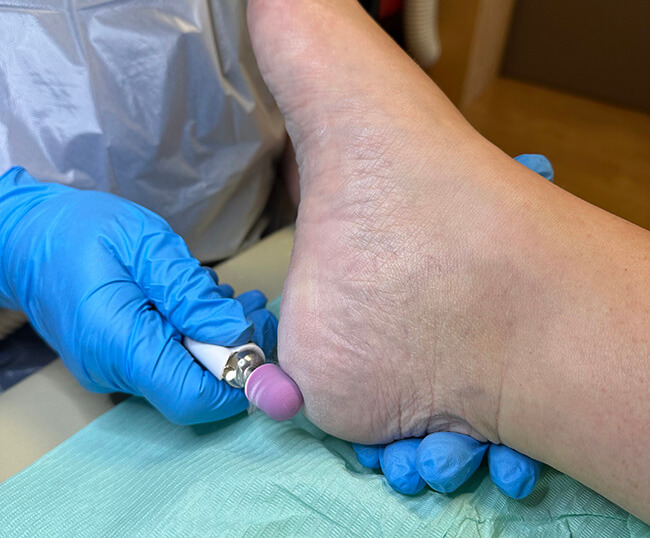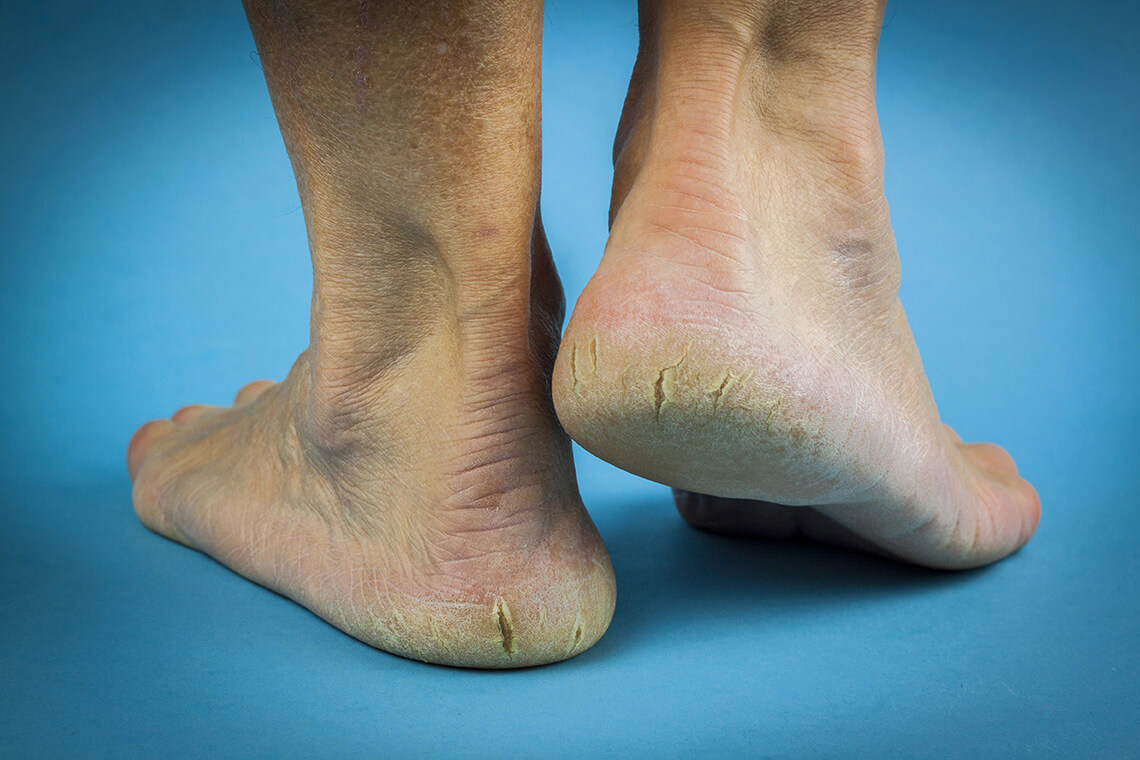Cracked heels – characterized by the dry, rough skin on the heels that splits open – are a common issue that can be both painful and frustrating. They’re often exacerbated during certain times of the year or by specific lifestyle factors, making them an unwelcome recurring problem for many people. Let’s take a closer look at when cracked heels are most prevalent, the causes and symptoms, and of course, the best treatments to keep your feet smooth and healthy.
Cracked heels are particularly common in:
- Winter Months: Cold, dry air and indoor heating tend to pull moisture from the skin, making heels more prone to dryness and cracking.
- Summer Months: While the skin generally retains moisture in warm weather, wearing open-backed sandals and flip-flops can make the heels rough and dry due to exposure to air, dust, and friction.
- Extended Periods of Standing: Jobs or lifestyles that require standing for long periods can put pressure on the heels, contributing to calluses and cracks.
- Barefoot Walking or Thin-Soled Shoes: Walking barefoot or wearing shoes with thin, non-cushioned soles can dry out the skin, as they don’t offer the support needed to prevent the natural fat pad on the heel from expanding.
What Causes Cracked Heels?
Several factors contribute to the development of cracked heels, and understanding these can help in preventing them.
Dry Skin
The skin on the heels is naturally drier than on other parts of the body, making it prone to roughness and cracks.
Obesity
Excess weight increases pressure on the heel, causing the fat pad under the heel to expand and crack.
Footwear Choices
Open-backed shoes and footwear that don’t cushion the heels well can aggravate the skin, leading to cracks.
Medical Conditions
Conditions like diabetes, hypothyroidism, eczema, and psoriasis can lead to extremely dry skin and make the skin around the heels more likely to crack.
Aging
As we age, the skin loses moisture more easily and becomes less elastic, increasing the chances of cracked heels.
Recognizing the Symptoms of Cracked Heels
The symptoms of cracked heels can vary, but some common signs include:
- Dry, Flaky Skin on the Heels: Often one of the first indications of impending cracks.
- Yellow or Brown Calluses: Thickened, hardened skin patches can form around the heel area.
- Pain and Itching: The cracks may become painful, especially if they split deeply into the skin, sometimes causing bleeding or infection.
- Redness or Swelling: Severe cases may show signs of inflammation, especially if the cracks are deep and exposed to external bacteria.
Effective Treatments for Cracked Heels

Here are some effective treatments to alleviate and prevent cracked heels:
Moisturize Regularly
Use thick creams, balms, or petroleum jelly to keep the skin hydrated. Look for ingredients like urea, shea butter, or salicylic acid to help penetrate and soften rough skin.
Soak and Exfoliate
Soaking your feet in warm water for about 10–15 minutes softens the skin, making it easier to exfoliate dead skin. Use a pumice stone or gentle foot scrub to remove dry patches.
Wear Supportive Shoes
Choose shoes that support the heels and have closed backs to reduce strain and friction.
Use Heel Cushions
Heel cups or pads provide added support and cushion to reduce pressure on the heels, making them especially helpful for people who stand for long periods.
Apply Overnight Treatments
Apply a thick layer of moisturizer before bed, then wear socks to help lock in moisture overnight. This allows the treatment to deeply penetrate the skin.
Stay Hydrated and Nourished: Drinking enough water and maintaining a balanced diet with adequate vitamins and minerals can support skin health, making it less prone to dryness and cracks.
See a Professional Foot Care Nurse
If you or a loved one finds it difficult to treat cracked heels at home and/or you want to ensure proper treatment, book an appointment with Sharon Brophy, our Professional Foot Care Nurse. Sharon can assess your feet, and treat the condition with minimal or no discomfort in one or a series of visits.
Cracked heels can range from a minor inconvenience to a painful condition. With some preventive care and the right treatment routine, you can avoid cracks and keep your feet looking and feeling their best year-round. Moisturize, exfoliate, wear appropriate footwear, and take the time to pamper your feet—they’ll thank you for it!

